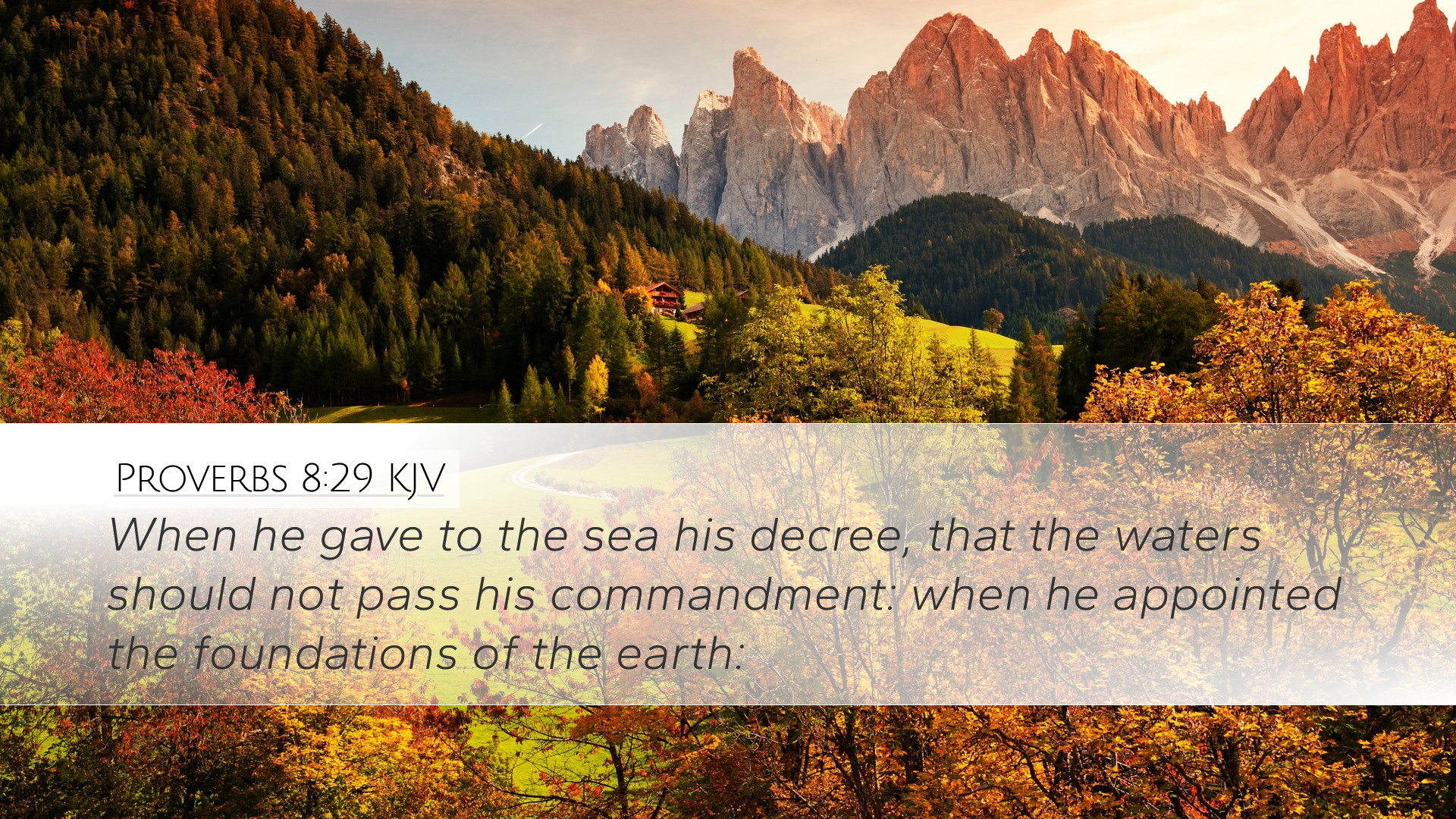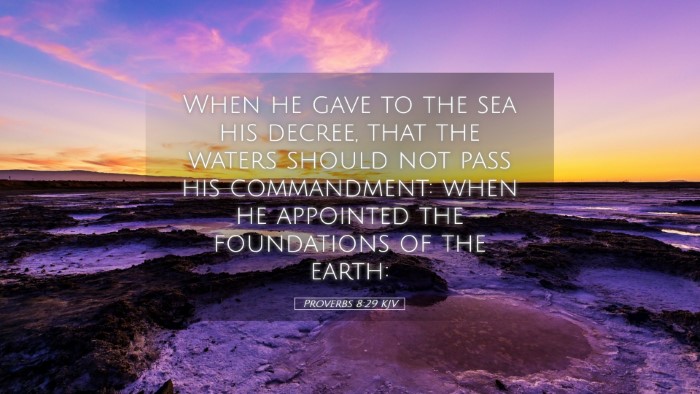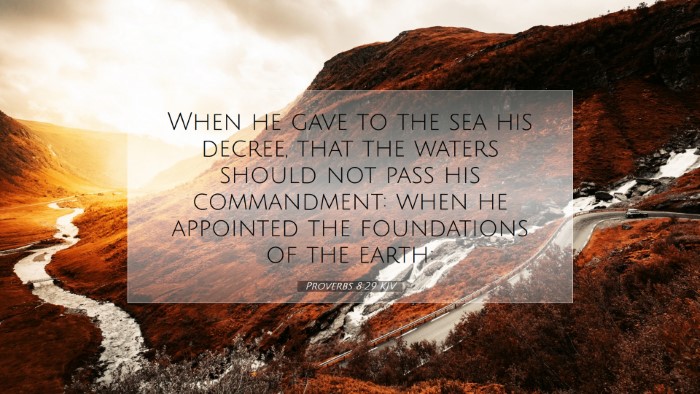Commentary on Proverbs 8:29
Proverbs 8:29 states: "When He assigned to the sea its limit, so that the waters would not transgress His command, when He marked out the foundations of the earth." This passage speaks profoundly about the sovereignty and creative authority of God over the natural world. In this commentary, we will explore insights from renowned public domain scholars including Matthew Henry, Albert Barnes, and Adam Clarke to provide a comprehensive understanding of this verse.
Insights on Divine Sovereignty
According to Matthew Henry, this verse highlights the control that God exerts over the creation. The phrase "assigned to the sea its limit" underscores the idea that God established boundaries for the waters, asserting His dominion over creation. Henry articulates that the seas obey His command and do not exceed those bounds, which serves as a testament to His omnipotence.
Albert Barnes elaborates further, noting that God's command over the sea serves as a metaphor for His greater authority over all aspects of life and creation. Just as the waters cannot transgress the limits set by God, so too are all things in life governed by His divine providence. Barnes emphasizes that this control serves not only as an illustration of God's creative power but also as assurance to His people of His constant oversight and care.
Theological Implications of Boundaries
Adam Clarke provides a valuable perspective on the significance of boundaries in the natural order. He asserts that the limits set by God are indicative of order and purity within creation. Clarke connects this to the necessary constraints that God places on elements of life, emphasizing that such boundaries promote stability, harmony, and fulfillment of purpose. Without God's designated limits, chaos could ensue.
Nature’s Testimony to God’s Wisdom
Henry notes that the established order is a reflection of God’s wisdom. He refers to wisdom as being personified in this chapter, suggesting that God in His wisdom has established the earth and sea in a way that works in perfect harmony. This testimony of creation demonstrates God's attributes not just to humanity but to the entire cosmos, extolling the truth and knowledge inherent in His design.
Barnes agrees, underscoring that when observant individuals study the seas and the earth's foundations, they should be drawn to acknowledge the wisdom of God as reflected in creation. His command establishes the laws of nature that govern them, providing both structure and beauty to our world.
Applications to Pastoral and Theological Contexts
The implications of Proverbs 8:29 extend profoundly into pastoral care and theological education. For pastors, this verse serves as a reminder of the divine authority that governs the church and encourages reliance on God’s sovereignty, especially in times of uncertainty and chaos. Pastors can take comfort in knowing that just as God has set boundaries for the sea, He orders the affairs of the church and individual lives.
- Encouragement in Hardship: The acknowledgment of God's control nurtures faith during trials.
- Foundation of Teaching: The importance of imparting knowledge of God's sovereignty to congregations.
- Celebration of Creation: Encouraging congregations to appreciate the beauty and order in God’s creation.
Conclusion: Living in Harmony with Divine Order
In conclusion, the verse from Proverbs 8:29 serves as a profound reminder of God's sovereign hand in creation, echoing through the wisdom literature of the Bible. The insights from Henry, Barnes, and Clarke invite pastors, students, theologians, and scholars to reflect deeply on the order provided by God through His commands. Recognizing and living in accordance with these divine principles leads to a life characterized by peace and purpose. As they embrace God's established limits, individuals are invited to trust in His will, echoing the rhythms of creation in their own lives.


